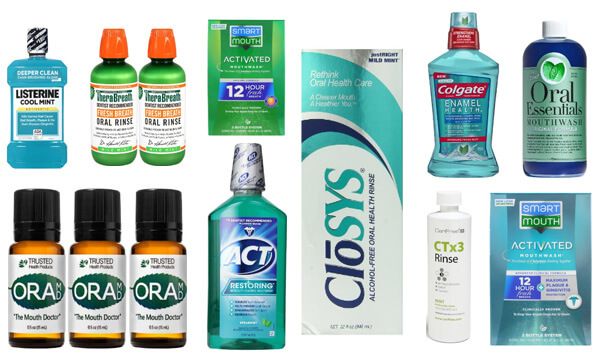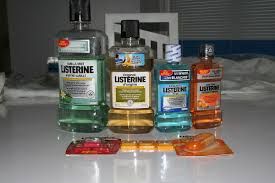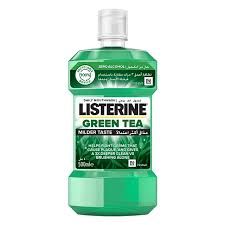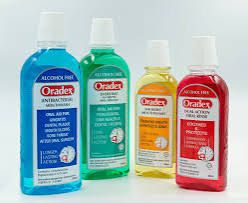"Mouthwash is often the unsung hero in oral hygiene routines, yet it plays a vital role in maintaining a healthy mouth. While brushing and flossing are fundamental, adding a mouthwash can provide additional protection against plaque, bacteria, and bad breath. Whether you’re looking to prevent cavities, control gum disease, or simply freshen your breath, using the right mouthwash can make all the difference."Source
Mouthwashes can give a lot benefits exceeding what brushing and flossing alone can provide in oral health care.
Some of it includes;
1- Reduces Plaque:
Mouthwashes work against the bacteria that bring about plaque, which reduces its accumulations across the gumline.
2- Prevents Gum Disease:
Mouthwashes also assist in controlling gingival inflammation by reducing it and even its symptoms such as bleeding eventually preventing more severe debilitating gingivitis.
3- Fights Bad Breath:
Mouthwash prevents halitosis (oral malodor) by neutralizing unpleasant smell bacteria and in turn production of pleasant scent and fragrance.
4- Strengthens Tooth Enamel:
Fluoride-based mouthwashes generally improve the enamel structure and as such counter acting against the presence of tooth decay and cavity.
5- Soothes Oral Irritation:
Sensitive gums or mouth ulcers can be relieved by the use of therapeutic mouthwashes in order to get out of discomfort and irritating oral conditions.
In a nutshell, the use of routine mouthwash can assist in having healthy oral health and be free from common dental diseases.
Mouthwash selection largely depends on specific needs. Some common oral mouthwashes are as follows:
1- Fluoride Mouthwash
Fluoride mouthwash is majorly for caries prevention or repair of incipient ones and strengthening of enamel. High risk patients which are prone to decay, patients with newly erupting teeth or even those with eroding enamel.
2- Antiseptic Mouthwash
This includes those mouthwashes containing chlorhexidine or cetylpyridinium chloride which organised together to eliminate infectious bacteria. These are beneficial to people that are being ravaged by suffering gum disease or even prevention of gingivitis.
It can also be used for those recovering from oral surgery incisions.
3- Cosmetic Mouthwash
This type of mouthwashes are primarily employed to freshen oral breath and masking of bad odour for a certain period. Though, are known to provide recognisable protection against bacteria, plaque or any form of oral infection.
4- Whitening Mouthwash
Whitening mouthwashes contain materials such as hydrogen peroxide which can bleach off surface stains from teeth enamel and bring about whiteness of teeth over a period of time.
It can helps in improving smiles especially for socially acquainted people and personalities.
5- Natural Mouthwash
From the name it implies mouthwashes that do not contain alcohol, artificial colors, or any form of synthetic agents or chemicals. They are primarily natural in origin.
The make up ingredients may include but not limited to aloe vera, tea tree oil, or essential oils that provide antibacterial or bacterial elimination functions and also being gentler on sensitive mouths or painful inflammation.
Proper application of a mouthwash is very necessary to achieve its full benefits.
1- Brush And Floss First
Mouthwashes are more effective and impactful when applied after mechanical removal of bacterial plaque or tartar either through brushing or flossing. This creates a fertile ground for the spread of the mouthwash liquid to every corner of the mouth without being blocked by plaque or food debris.
2- Apply in right amount or Proportion
General recommendation usually from 20-30 ml per rinse. So follow instructions of manufacturers
3- Mouth Squeezing For 30 Seconds To 1 Minute
Squeeze the mouth containing the mouth for at least 30 seconds in order to cover all areas, up to the back of your mouth and even between your teeth. Some mouthwashes may require close to a minutes for therapeutic actions.
4- Spit, avoid Swallowing
Spitting the mouthwash out immediately after swishing is very important. As swallowing it especially ones containing antiseptic or fluoride varieties, can be dangerous and lead to poisoning.
5- Avoiding Eating Or Drinking Immediately after Application
For effective therapeutic actions, waiting for at least 30 minutes before eating or drinking anything is highly recommended and necessary.
Benefits of using Alcohol-Free Mouthwashes
Many mouthwashes contain alcohol, as it assists a lot in eliminating bacteria. However, alcohol is double edged sword as it can cause a burning sensation and even sensitivity to teeth and gums. For those reasons it may not be well tolerated by everyone especially those with preceding sensitive gums.
Benefits Of Alcohol-Free Mouthwash:
i- Gentler on Gums:
Ideal for people with hyper sensitive gums or get easily irritated.
ii- No Drying Effect:
Alcohol is noted for reducing salivary production, which may in in turn aggravate dry mouth. Alcohol-free varieties assist in maintaining moisture levels.
iii- Suitable for Daily Use:
Alcohol-free mouthwash is more safer for a regular and a long-term user without being scared of harsh side effects associated with alcoholic-based rinses.
Switching to an alcohol-free mouthwash can be a better option, if sensitivity or dryness of mouth is experienced in the course of using an alcoholic based mouthwash.
For Dry Mouth:
Using of mouthwashes that are specified for dry mouth can go a long way in salivary production or stimulates its secretion and eventually reducing discomfort that accompanies xerostomia. They are often regarded as “moisturizing” or “hydrating” agents by some dental care practitioners.
For Post-Surgery Care:
"If you’ve undergone oral surgery or a tooth extraction, your dentist may recommend an antiseptic mouthwash like chlorhexidine to reduce the risk of infection."Source
For Orthodontic Care:
Braces and other orthodontic appliances makes it hard to remove plaque mechanically. Antibacterial mouthwashes can assist in this regard as they can easily flow to every corner of this fitted appliances and exert their plaque control actions.
Some commercial mouthwashes are prone to causing tooth sensitivity due some chemical ingredients. To avoid sensitivity, natural alternatives can be applied in replacement. These include;
1- Salt Water Rinse:
A simple salt water rinse can go a long way in greatly reducing inflammation and bacterial elimination.
2- Baking Soda Solution:
Baking soda mixed with water can neutralize acids thereby preventing caries and whiten teeth naturally.
3- Essential Oils:
Oils like tea tree or peppermint oil posses some antibacterial properties. A few drops mixed with water can do some good job.
Although these alternatives can complement daily routine activities, they may not provide the same important benefits which is achievable from a fluoride or antiseptic mouthwash.
That's all as regards this post more would be submitted for review in the subsequent post and happy blogging.
Happy Blogging and Reading 💥💥💥💥
Video from Teeth talk Girl YouTuber



